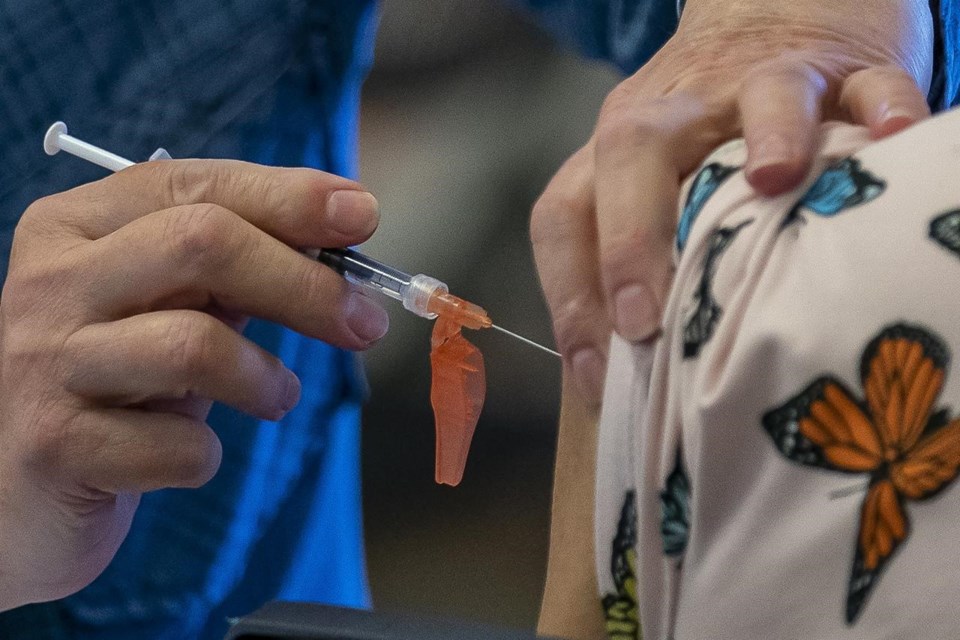VANCOUVER — British Columbia's health minister is urging caution as COVID-19 numbers stabilize, saying the Northern region had a test positivity rate of 19 per cent on Wednesday compared with a rate of four to five per cent for the rest of the province.
Adrian Dix said the lowest test positivity rate of 2.5 per cent was in Vancouver Coastal.
He said the province's BC Vaccine Card has helped boost vaccination rates but 10.3 per cent of the population remains unvaccinated, so the province will continue pushing hard to get that number down as influenza season approaches and flu shots are offered.
The number of COVID-19 cases has been slowly declining, with the province recording 609 cases on Wednesday, along with six more deaths, for a total of 2,137 fatalities.
The province said in a statement that 89.7 per cent of eligible people 12 and older have received their first dose of vaccine and 84.7 per cent had been fully vaccinated.
"It's always good to hear positive news," Dix said of declining cases. "But I want to temper that by saying that there's a number of things to look at."
He said there is pressure on hospitalization rates and on critical care units from a high number of seriously ill patients, mostly those with COVID-19, being transported from the Northern region to other areas.
Dix said 40 of the 155 patients who contracted the virus and are currently receiving critical care are under age 50, and all of them are unvaccinated.
An independent group of researchers analyzing the course of COVID-19 in B.C. released a report Wednesday saying that while cases are declining at about two per cent a day, children under 10 could now be more at risk of contracting the virus because they are unvaccinated.
The experts in epidemiology, mathematics and data analysis from three universities in B.C. and the private sector said that age group had half the case rate earlier this year relative to those who are older, but that risk may rise.
They said the use of masks indoors and regional measures in areas with high case counts helped to stabilize the number of cases through the fall, but future risks could come from more time indoors as the weather cools and more transmissible variants evolve.
The report says the number of patients in intensive care units rose in September but has since returned to levels seen earlier in the year as B.C.'s proof-of-vaccination card helped to boost vaccination rates.
It says communities with 95 per cent of eligible people vaccinated have 4.3 times fewer COVID-19 cases than those with 75 per cent vaccination.
The group said that over the next three weeks, projections suggest cases are expected to decline in all health authorities as immunity levels build among the immunized.
This report by The Canadian Press was first published Oct. 27, 2021.
The Canadian Press



